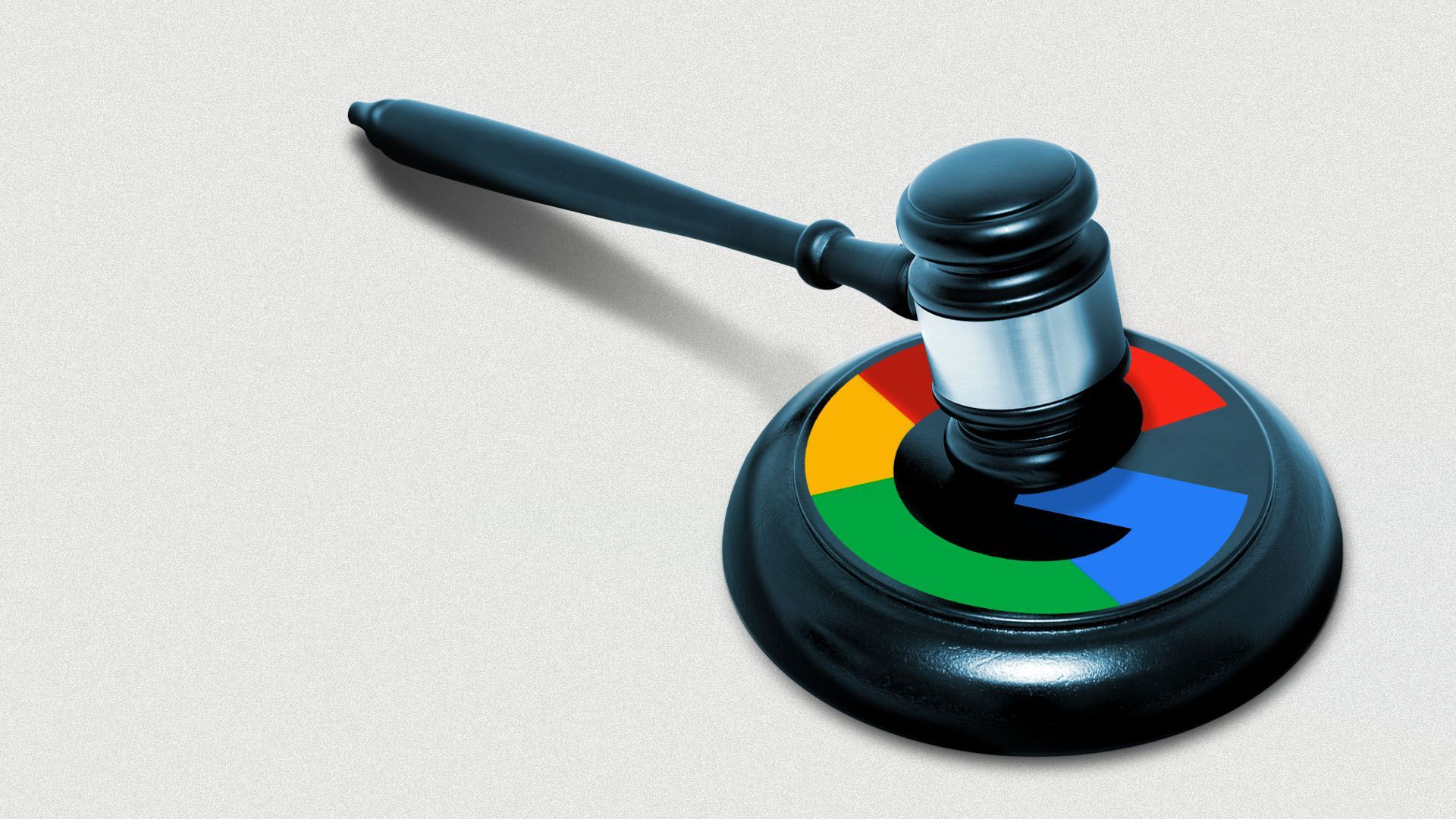U.S. vs. Google — the siege begins
Add Axios as your preferred source to
see more of our stories on Google.

Illustration: Sarah Grillo/Axios
The Justice Department fired the starter pistol on what's likely to be a years-long legal siege of Big Tech by the U.S. government when it filed a major antitrust suit Tuesday against Google.
The big picture: Once a generation, it seems, federal regulators decide to take on a dominant tech company. Two decades ago, Microsoft was the target; two decades before that, IBM.
Yes, but: Today's fight takes place on a very different landscape. Unlike Microsoft in the '90s, Google is only one of a quintet of giant companies, including Facebook, Apple, Amazon and (still!) Microsoft — all competing across a broad landscape involving online ads, search, media, e-commerce, workplace communication, social networking, voice and AI.
Why it matters: Lawmakers, experts and critics have warned with increasing alarm over the past decade that these companies' unprecedented concentration of power threatens competition, free speech, consumer choice and user privacy. The Google suit represents the biggest U.S. effort yet to rein in that power, following significant moves by the EU.
Details: The suit by DOJ and 11 states accuses Google of using anticompetitive tactics to illegally monopolize the online search and search advertising markets, using exclusionary deals with phone makers and other tactics to lock in its search as a default.
- The suit asks for "structural relief," which could mean an effort to break up Google in some way.
For its part, Google says it's got plenty of competition and the government has failed to make a case that its actions have harmed consumers, most of whom never pay a penny for Google's services.
Be smart: Antitrust cases can take years to resolve if the government and the accused company can't agree on a settlement, and many uncertainties hang over the case.
- The Justice Department prosecutors were careful to keep the partisan fighting over alleged bias against conservatives by Google and other tech giants out of the picture of this suit. But a change in administration come January could still mean a change in DOJ's strategy.
The bottom line: Courts move slowly and tech moves fast. That means antitrust enforcement actions often lag the marketplace — and by the time cases conclude, they barely seem relevant.
- For all that, in almost any timeline you can imagine 5 or 10 years hence, Google Search will still be a foundation stone of the digital world — and that, in itself, may give this lawsuit some extra gravity.
Go deeper:


